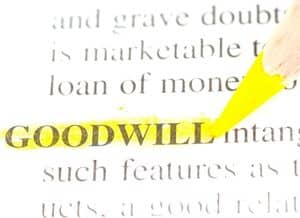In the dynamic landscape of mergers and acquisitions (M&A), the role of business valuation cannot be overstated. The process of determining the worth of a company plays a pivotal role in shaping the success of an M&A deal. This blog explores the intricacies of business valuation in the M&A landscape, shedding light on negotiation tactics, due diligence, and the profound impact on shareholder value.

Understanding the Importance of Business Valuation in M&A
At the heart of any M&A transaction lies the question of value. No matter the position, companies need a clear understanding of the financial health and potential synergies of the target. Business valuation serves as the linchpin, providing a numerical representation of the company’s worth, laying the foundation for strategic decision-making.
1. Negotiation Tactics
Valuation is not a mere number; it is a powerful tool in negotiation. In M&A deals, the acquirer and the target company often have different perceptions of value. Businesses can leverage key insights from a business valuation to find common ground, aiming for a mutually beneficial agreement.
Strategic Positioning
Achieving a mutually acceptable deal is the primary goal of any negotiation. As a result, negotiators have to position their desires in a convincing argument to win over the other side. Logical reasoning based on a foundation of accurate numbers is one of the key methods to do this. Valuations are a strategic asset that sets the foundation for a company’s argument. For the acquirer, a well-supported valuation can justify the offered price. On the other side, the target company can use a thorough valuation to demonstrate its true worth. In either case, the valuation moves the negotiation closer to a mutually beneficial number.
Earn-Out Structures
In some cases, M&A deals include earn-out structures where a portion of the purchase price is contingent on future performance. A valuation becomes a crucial factor in defining the parameters for earn-out clauses, aligning the interests of both parties and mitigating risks.
2. Due Diligence
Meticulous due diligence is the backbone of any successful M&A transaction. Valuation is an integral part of this process, offering a comprehensive understanding of the financial, operational, and strategic aspects of the target company.
Financial Due Diligence
Business valuations go beyond the numbers on a balance sheet. It involves a thorough examination of financial statements, cash flow projections, and an assessment of the target’s overall financial health. It provides insights into the company’s well-being and management. This in-depth financial due diligence ensures that there are no hidden liabilities or risks.
Operational Due Diligence
Valuation extends into the operational realm, evaluating the efficiency of processes, identifying potential synergies, and assessing the scalability of the target’s business model. Understanding these qualitative aspects is essential for a holistic due diligence process.
3. Impact on Shareholder Value
Ultimately, the success of an M&A deal is measured by its impact on shareholder value. Business valuations play a pivotal role in this equation, as the foundation for negotiations it guides businesses to making well-informed decisions. The outcome of these negotiations and due diligence will directly influence the impact that the acquisition or merger have on shareholders.
Accurate Pricing
A well-executed valuation ensures that the purchase price accurately reflects the intrinsic value of the target company. It’s determination is based on in depth research of the company’s performance, financial health and goodwill.
Post-Merger Integration
The integration of two entities involves aligning cultures, systems, and processes. A thorough valuation can identify potential challenges and opportunities, aiding in the development of a post-merger integration strategy that maximizes shareholder value.
Whether a company is being acquired or merged, business valuations remain a core requirement for a successful M&A transaction. It provides a fair and calculated path for negotiating between the companies involved. Companies that recognize the multifaceted role of business valuation in the M&A landscape are better positioned to navigate these complex transactions towards a favorable deal.
Please contact Tom Bailey via our online contact form for more information.
Councilor, Buchanan & Mitchell (CBM) is a professional services firm delivering tax, accounting and business advisory expertise throughout the Mid-Atlantic region from offices in Bethesda, MD and Washington, DC.



